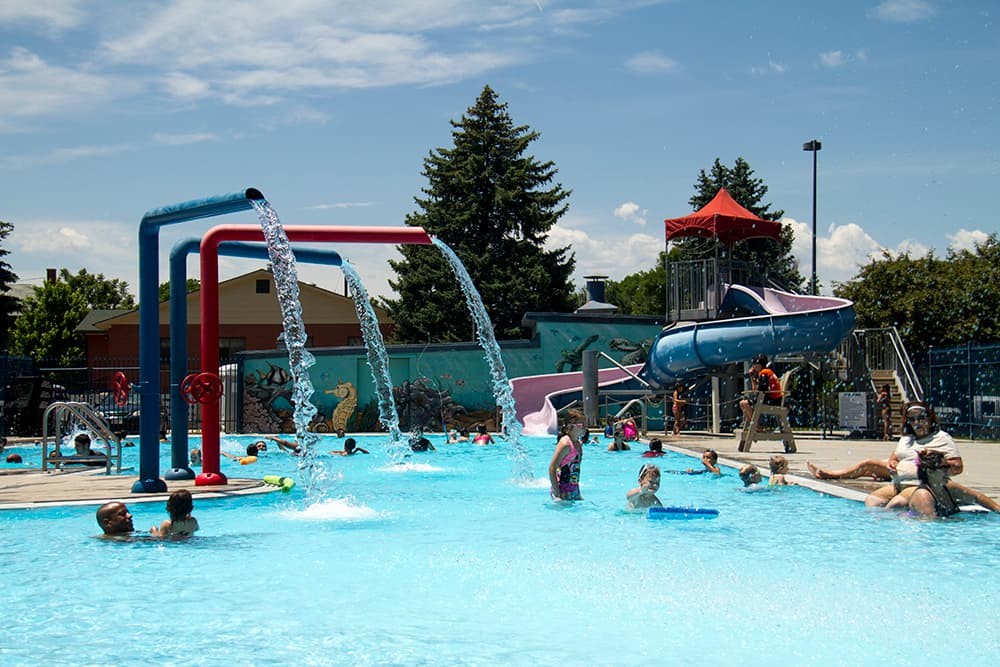
Does your neighborhood need a larger library or a new pool? What about bike paths or road improvements?
Denver hopes to issue between $500 million and $600 million in new debt next year -- if voters approve -- to do another major round of capital investments. A public input process kicks off tonight with the first of six meetings to hear from residents about their priorities.
A 2017 general obligation bond package would use property taxes to pay back debt taken out to do the projects over the next 10 years, rather than wait until they could be done with existing revenue.
"GO bonds," as they're known in government-speak, can be used to pay for renovations and improvements to city-owned facilities, as well as to build new facilities. They can't be used to pay for ongoing operating expenses, to build schools (that's the school district's responsibility) or to do drainage projects (those are paid for with revenue bonds from wastewater and stormwater fees).
In a meeting Tuesday of the Denver City Council's finance and governance committee, city Chief Financial Officer Brendan Hanlon said the city could take on up to $600 million in debt without raising property taxes. If council members want to go for a larger bond package and believe the community would support it, they could consider raising taxes.
The starting point for the 2017 bond program will be the six-year capital improvement plan, captured in the Elevate 2020 document. Each year, some of those projects are handled in the annual budget, but the backlog keeps growing. All told, there are more than $1 billion worth of deferred projects in the six-year plan, so there's already more than enough to go around.
But the city wants to hear from the public about how to prioritize the existing projects -- since there is no way the bond program is going to cover everything -- and what other community projects it should consider.
The last Denver bond package was in 2007.
The Better Denver bond package generated $550 million for some 380 capital projects. Those include the new Denver Animal Shelter, the Lowry Fire Station, the crime lab, the playground at Ruby Hill Park, corridor improvements along South Broadway, the Corky Gonzalez Library, the Eastside Human Services building and many others.
Because construction costs went down during the recession, the city was actually able to do more projects than originally planned. That may not be the case this time.
Regardless, Tykus Holloway, deputy chief projects officer in the Mayor's Office, said the process of choosing from many worthy projects is always a difficult one.
"We feel like this is a great opportunity for the city to invest in our future and make the city of Denver great," Holloway said. "By the public coming to these meetings, they'll be able to make their voices heard on the priorities for these projects."
There are a several ways to participate in the public process.
Attend a community meeting:
These meeting start tonight. Spanish interpretation and child care are available.
Tuesday, Nov. 15, 6-7:30 p.m: Montbello Campus, 5000 Crown Blvd.
Thursday, Nov. 17, 6-7:30 p.m: Teller Elementary School, 1150 Garfield St.
Tuesday, Nov. 29, 6-7:30 p.m.: Corky Gonzales Library, 1498 Irving St.
Thursday, Dec. 1, 6-7:30 p.m.: Lincoln High School, 2285 S. Federal Blvd.
Tuesday, Dec. 6, 6-7:30 p.m.: Bruce Randolph School, 3955 Steele St.
Thursday, Dec. 8, 6-7:30 p.m.: South High School, 1700 E. Louisiana Ave.
Submit written comments:
Comment cards will be available at libraries and rec centers until Dec. 21. You can also send an email to [email protected].
Take an online map-based survey:
This is actually pretty cool. This interactive map lets you draw in the improvements you want or mark areas that have been neglected.
What happens then?
Once all the public comment has been collected and analyzed, the Mayor's Office will convene a set of stakeholder groups in focus areas like "parks and rec" or "transportation and mobility." Those groups will further narrow down the recommendations, and then there will be another round of public feedback. The Denver City Council would make a final decision about the package in late summer, and it would go on the ballot for the 2017 municipal election.












